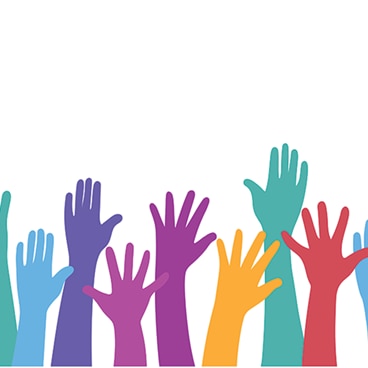As a branch manager, Richard Dunn has endless tasks each day to keep his network of Southern California Schwab branches running smoothly. But one day in November of 2022 he learned that sometimes the work will just have to wait, as priorities can change in an instant.
Prioritizing what’s important
Wendy, 86, is a prospective Schwab client who was at the Irvine branch on this November day to attend a Women in Investing luncheon. While still sharp, Wendy was a little mixed up when she learned the event was actually at a local restaurant. On her way back to her car, she fell—unfortunately, a risk many elderly people face. She was able to get back into the branch but didn’t know what to do.
After taking one look at Wendy, Richard forgot all about his checklist and inbox and knew he had to help.
“I could see she was in pain,” explains Richard. “I sat her on the couch to assess the situation and find the best path.”
More than three decades of experience
In a way, you could say that helping Wendy after her fall was actually something Richard was uniquely prepared for. You see, it’s not so different from what Richard and his team of financial consultants do for their clients every day. They take time to learn about the situations and needs of their clients and then steer them toward the best financial solution. And with more than 30 years at Schwab, you could say Richard has plenty of experience.
So, Richard ran through the options with Wendy. Seeing that she was in too much pain to drive, he offered to call 911, but she was firm about not wanting an ambulance. Wendy thought maybe her insurance provider, or a staff member of her retirement community would give her a ride, but after making some calls on her behalf, Richard realized these were also dead ends.
“So, I said, ‘Let me take you to the hospital. It’s not too far,’” explains Richard.
Richard Dunn (second from left) with his family.

Helping someone in need
He helped her get signed in and comfortable in the emergency room waiting area. He tried again to reach Wendy’s adult children, who are clients of Schwab. But her son in Los Angeles (two hours away) wasn’t answering, and her daughter lived in England, so she obviously wasn’t an option either, though Richard did send an email to let her know what was going on.
Noticing Wendy was still in a great amount of pain and needed help with things like standing up to go to the restroom or twisting off the cap of a water bottle, Richard decided to stay. He went to the cafeteria to get some lunch for Wendy.
Two hours turned into three, then four, and Richard became Wendy’s advocate as he explained to the hospital staff that she was in pain and needed attention. After the branch closed, Birol Sarigul, the financial consultant who had invited Wendy to the luncheon, stopped by to check on the pair.
“We have a busy life and busy work environment filled with tasks, triggers and expectations,” explains Birol. “But it was wonderful to see my branch manager drop everything to help someone in need.”
Finally, after six hours of waiting, Wendy was seen by a doctor who discovered her arm was broken in two spots along with two broken ribs. Thankfully, by this time, Richard had gotten in touch with Wendy’s son, who’d arrived to take her home.
An opportunity to learn about a generation
“She is a very nice lady,” explains Richard who refrains from calling her a prospective client because, “This wasn’t about business—it was about someone who just needed some help.”
While Birol was putting signs on Wendy’s 20-year-old compact sedan so it wouldn’t get towed from the branch parking lot, Richard and Wendy spent the afternoon talking about family and Wendy’s past. “She grew up in the Great Depression,” explains Richard. “She and her husband did a great job of planning for themselves. But even though I knew that she had more money than she’d ever be able to spend in her lifetime, I got to understand that it was this history that created a mindset about conserving money.”
At one point, Wendy took a rubber band from her purse and asked Richard to use it to replace the broken clasp on the band of her $30 watch. For Wendy’s generation—if you could still use something, you didn’t replace it, even if you had the means to do so. And you certainly didn’t take an ambulance if you found a friend like Richard to drive you.
After seeing Wendy off, Richard tried to get back to the day’s tasks. All the work was still there of course, but Richard knew he’d prioritized the right thing because he helped someone with their needs—even if the need wasn’t financial this time.


